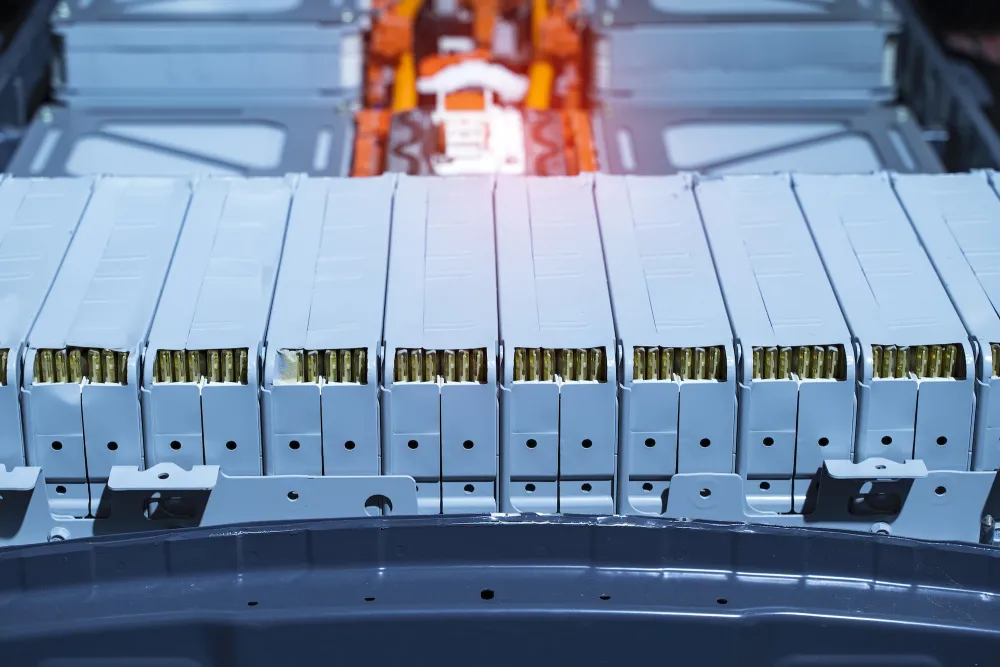VANCOUVER — A new report from the Pembina Institute and Northern Confluence Initiative demonstrates that B.C.’s role as an early adopter of electric vehicles (EVs) creates a significant economic and environmental opportunity: to secure a regional leadership role in recycling metals and minerals from EV batteries at end-of-life. The environmental benefits include closing the life cycle loop of a battery as well as minimizing the need for raw resource extraction.
Closing the Loop: B.C.’s role in recycling battery metals and minerals to power the electric vehicle revolution shows how recycling metals and minerals can play a key role in material supply and emission reductions in the transition to sustainable transportation.
In recent years, there has been a surge in the number of EVs hitting the road in B.C. and the rest of North America. In response, global automakers are redirecting production capacity toward low- and zero-emission vehicles, precipitating rapid growth in the demand for the metals and minerals needed for EV batteries. EV batteries have an average lifespan of eight to 15 years.
While the B.C. government has started to develop EV battery recycling programs, which would become operational in 2026, accelerating that effort would bring multiple benefits. Significant investments are now being made in aggressive EV adoption, public transit infrastructure, and EV battery recycling capabilities which opens up sizable market opportunities for B.C., paving the way to becoming a leader in the low-carbon future.
To capitalize on a new area of potential economic growth, the report recommends that the government of B.C.:
- Assume a leadership role in engaging with neighbouring jurisdictions to ensure efficient and safe collection and transport of batteries for recycling purposes, including across borders.
- Establish clear guidelines and an efficient review process for battery recycling facility permitting and land use.
- Accelerate the timeline for implementing provincial regulations from 2026 to 2023 in order to address a growing stock of end-of-life batteries and position the province as a first-mover and regional leader.
- Support pilot projects that explore solutions to various challenges, such as Quebec’s support for a “battery passport” pilot to trace metals and minerals from mining and processing through to their use in batteries.
- Work with the federal government to establish content targets for incorporating recycled metals and minerals into battery cells produced in Canada, closing the loop on the materials chain and spurring investment in recycling capacity.
- Work with the federal government to establish battery labeling standards to ensure cell chemistry information can be used to simplify end-of-life recycling.
Quotes
“Given the incredible uptick in EV sales in British Columbia, we have a great opportunity to take advantage of repurposing and recycling batteries to minimize waste and reduce the need for raw materials from mining. EV manufacturers are looking to source materials responsibly, and B.C. can help do that by improving mining regulations and investing now in recycling capabilities.”
— Nikki Skuce, Director, Northern Confluence Initiative
“The CleanBC Roadmap to 2030 will drive more electric vehicles on the road and also envisions a circular economy. Facilitating EV battery recycling and investing in local recycling infrastructure will support B.C.’s transition to a clean economy.”
— Karen Tam Wu, Regional Director, British Columbia, Pembina Institute
Quick facts
- According to the International Energy Agency, 18 of the world’s top 20 vehicle manufacturers‚ which accounted for about 90% of new car registrations in 2020, have announced plans to increase their portfolio of electric models and rapidly scale up production.
- In 2020, British Columbia’s zero emission vehicle (ZEV) sales grew to represent a continent-leading 9.4% of all light duty vehicle sales; the total number of EVs on BC roads reached 54,469.
- The BC government’s CleanBC Roadmap to 2030 signalled a more aggressive ZEV sales mandate of 26% in 2026, 90% in 2030 and 100% in 2035, which will lead to increasingly rapid growth in the number of EVs on B.C.’s roads.
- Canada’s federal and B.C. governments are positioning the country as a key materials source for the low carbon transition. But B.C.’s reputation as a responsible mining jurisdiction is not without criticism, and several large purchasers in the automotive, tech, building and jewellery sectors are increasing pressure for more responsible mining in order to clean up their supply chains.
- Recycling EV batteries at end-of-life and re-using the recovered metals and minerals—thus avoiding virgin extraction and refining—has been estimated to reduce lifecycle emissions by up to 51% and save as much as 20 times the energy relative to mining new, raw materials.
- Currently, less than 5% of EV batteries are recycled worldwide.
[30]
Download a copy of Closing the Loop: B.C.’s role in recycling battery metals and minerals to power the electric vehicle revolution
Contact
Victoria Foote
Senior Manager, Strategic Communications, Pembina Institute
647-290-9384
Background
Report: Power Play: Canada’s role in the electric vehicle transition
Report: A resilient economy and a safe climate: Our vision for B.C.




